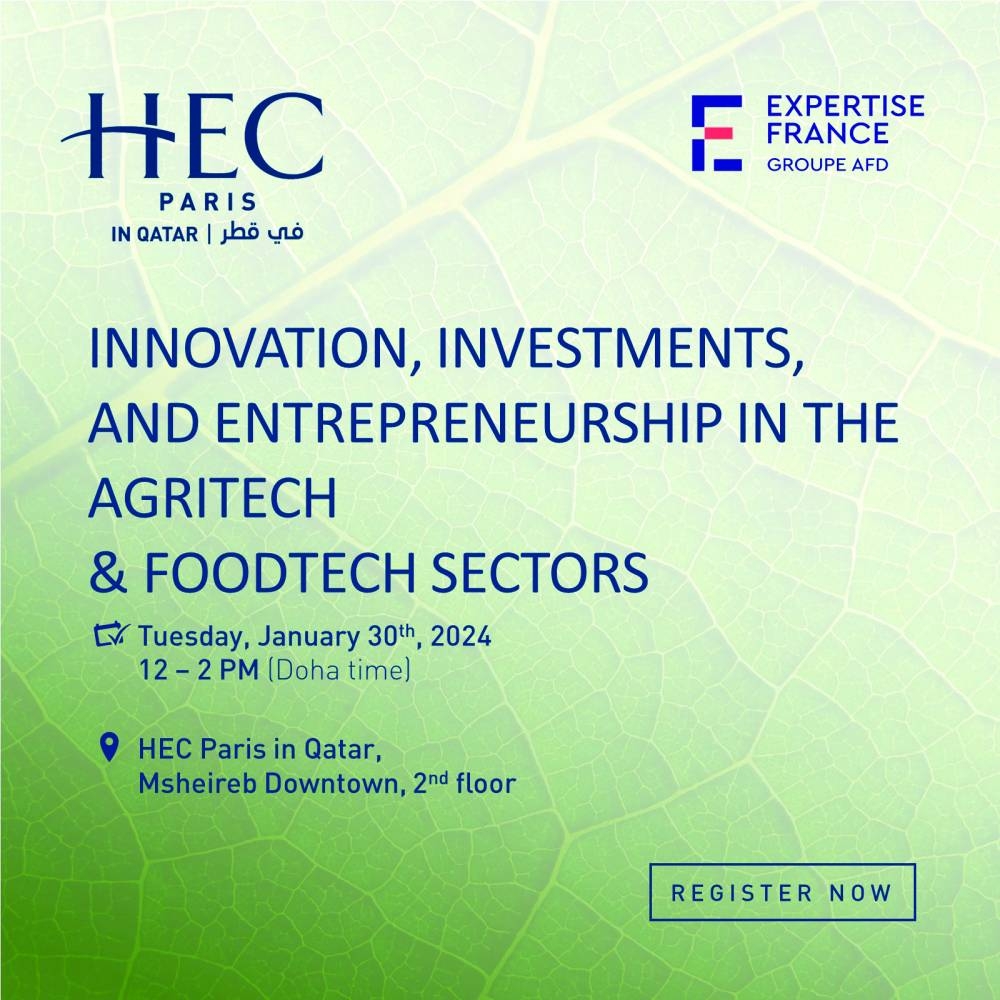HEC Paris in Qatar will host a panel discussion on ‘Innovation, Investments and Entrepreneurship in the Agritech and Foodtech Sectors’ on January 30 from noon to 2 pm. A group of experts from the relevant sectors will take part in the event at the HEC Paris in Qatar campus in Msheireb Downtown.
The masterclass will include presentations followed by a panel discussion featuring various prominent figures from the industry as well as HEC Paris alumni. They will discuss opportunities, challenges and necessary enablers to unfold the full potential of the agri-food sector.
The presenters in the discussion are: Ghanim al-Sulaiti, founder, Enbat Holdings and HEC Paris alumnus; Sophie Benard, food strategist and HEC Paris alumni and Hussein al-Hussein, regional manager for the Mena region at Farm to Plate Company. The session will be moderated by Dr Delphine Acloque, food security adviser to the Ministry of Municipality.
The panelists at the event are: Alvyn Severien, founder and CEO of Algama Foods, vice-president of the French Microalgae association and food-tech ambassador for the French government; Ramzi Schumann, director of commercialisation at Vital Foods Technologies and HEC Paris alumnus; Firas Khalil, director of information technology at Baladna Food Industries and HEC Paris alumnus; Mohammad Batran, group general manager at Agrico Qatar and Mickaël Boccacino, president of DiFFERs Company and HEC alumnus.
The panelists will explore the latest innovations and investments in the agri-tech and food-tech sectors, as HEC Paris will bring together Qatari, GCC and French stakeholders to shed light on the current agri-food challenges and dive into some insightful entrepreneurial journeys. With technology transformation, climate change and global threats on food security are shaping a new wave of concerns as well as major opportunities in the agri-food sector. Investments in agri-tech and food-tech businesses and pilot projects have increased worldwide and many GCC countries are at the forefront of this trend. Investing in food security through alternative proteins, high-tech production, new infrastructure storage or improved distribution networks are also major tools to achieve economic diversification in the region.

